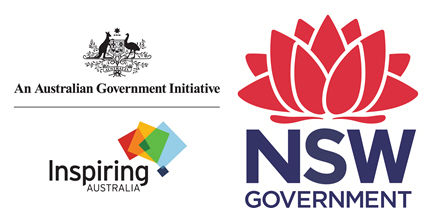Join our #WiNSciWeek Webinars!
As part of National Science Week, WiN Australia is hosting a series of webinars.
To register, simply click on the “register now” buttons below.
Can’t make it at the scheduled time? We’ll miss you, but be sure to register anyway to receive a link to view the webinar later.
Webinar #1: Becoming ‘The Incredible Hulk’ and debunking other myths about radiation
Monday 17 August: 4pm – 5pm AEST
In movies, if you’re exposed to radiation you’re at a higher chance of gaining superpowers. However, if this was the case in real life, wouldn’t there be more radioactively induced superheroes and villains roaming the earth? Enter our hero scientist, Dr Gillian Hirth, an environmental radiochemist, the current Chair of the United Nations Scientific Committee on the Effects of Atomic Radiation (UNSCEAR) and Chief Radiation Health Scientist of the Australian Radiation Protection and Nuclear Safety Agency (ARPANSA).
Dr Hirth will demystify the science around radiation and its effects on the human body. As a type of energy that we are exposed to everyday, it’s worthwhile understanding what effects radiation has on us. Join Dr Hirth and a panel of radiation experts as we talk radiation and help understand this invisible energy. It’ll be RAD!
Webinar #2: Glowing green: how green is nuclear energy?
Tuesday 18 August: 4pm – 5pm AEST
This may come as a shock – nuclear reactors glow blue, not green. Thanks Homer for this misconception, d’oh!
But nuclear power is green in other ways. Nuclear power is the world’s second largest source of low emissions electricity generation. And just like pretty much every other form of technology, the types of reactors under construction today and planned for the future have come a long way since those designed more than 50 years ago.
Join nuclear energy enthusiast Dr Jo Lackenby (President, Women in Nuclear Australia) on a journey of discovery. How exactly does the world generate its energy and electricity, and what are the resulting carbon emissions? How does nuclear energy fit into the climate change picture? And how is today’s nuclear technology different from that of the past?
Don’t miss hearing Dr Jo and a panel of knowledgeable nuclear energy individuals as we talk nuclear energy and climate change, and answer all your ‘critical’ questions (physics pun intended).
Webinar #3: Careers in Nuclear – for who? You!
Wednesday 19 August: 4pm – 5pm AEST
Think a career in nuclear couldn’t be for you? Chances are, jobs in nuclear and the people who do them looks nothing like you imagine.
This panel is the chance to meet and ask questions of four people who have made careers in the nuclear industry:
- Julie Murray (Senior Radiation Security Advisor and Major Projects Manager at ARPANSA);
- Tim Rownes (Operation Planning Engineer at Fennovoima, Finland):
- Katrina Van de Ven (Government and International Affairs Advisor at ANSTO); and
- Sheruna Naidoo (Principal Scientist at Liverpool Hospital).
They will share what drew them to nuclear and the path they took to get into the field. Hear the sometimes unexpected directions their careers have taken them, what they actually do at work all day, and gain plenty of first-hand advice for pursuing your own nuclear career. Don’t miss this unique opportunity to get an insight into this diverse and dynamic field.
Webinar #4: Nuclear Could Save Your Life and the Environment
Thursday 20 August: 4pm – 5pm AEST
Chances are, if someone says the word “nuclear”, Homer Simpson and power stations are on the list of things that come to mind. But what about the environment or health? Believe it or not, nuclear science and technology makes a critical contribution to the wellbeing of the planet and the people who live on it.
Dr Cath Hughes (Program Manager, Water Resources Sustainability at ANSTO) and Dr Elizabeth Bailey (Chief Nuclear Medicine Technologist at Royal North Shore Hospital) will give you a glimpse into the integral role nuclear plays in delivering the real-world outcomes of their work.
They will be joined by an expert panel to answer all of your curly questions about applying nuclear science and technology to critical environmental and health issues. Is it safe? Is it necessary? What are the benefits? Get all of these answers and more from our expert panel!
This initiative has been supported by Inspiring Australia as part of National Science Week
